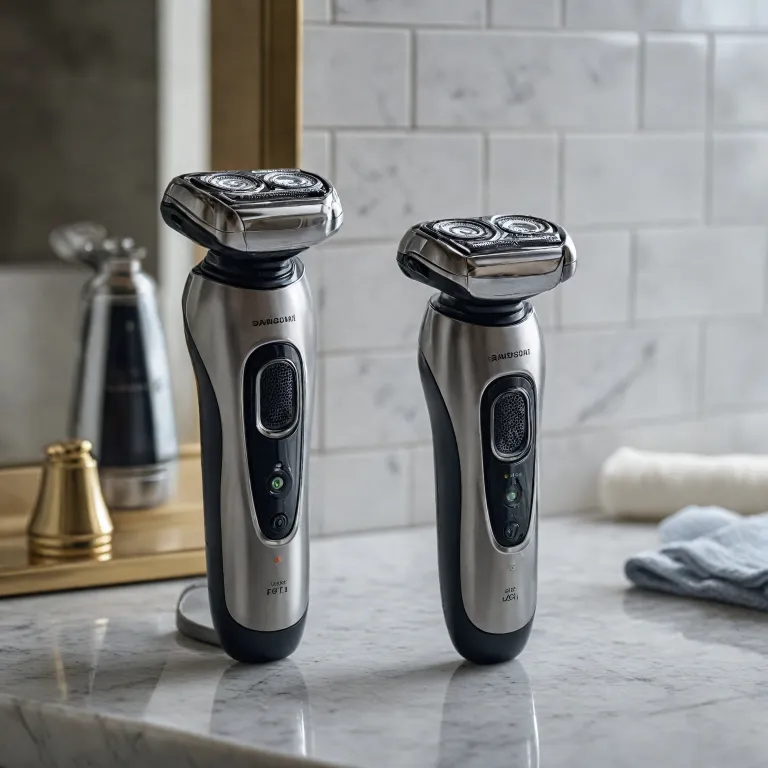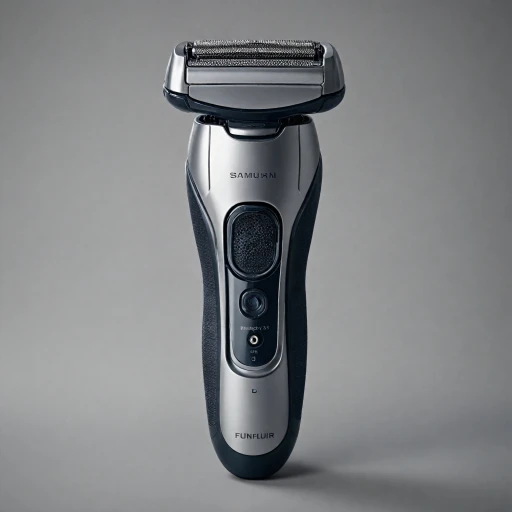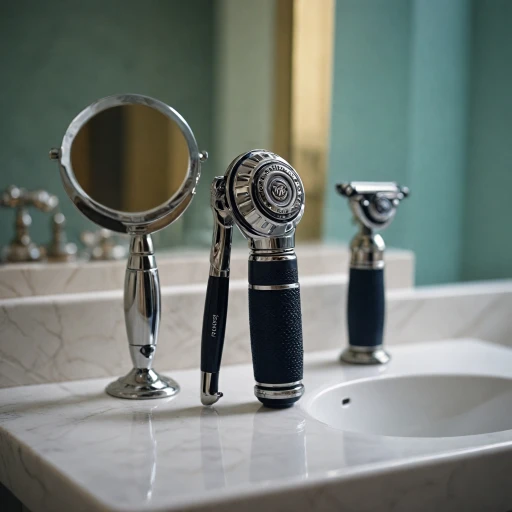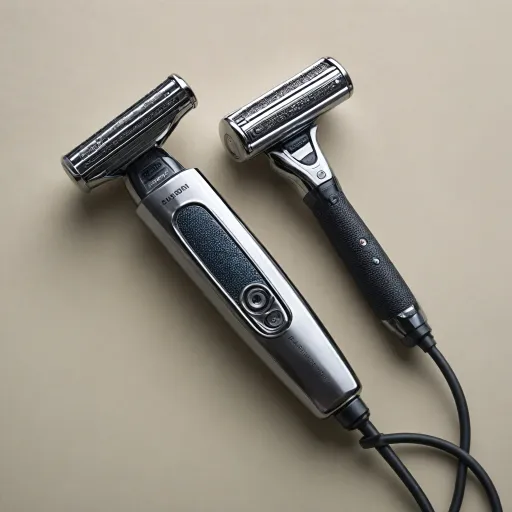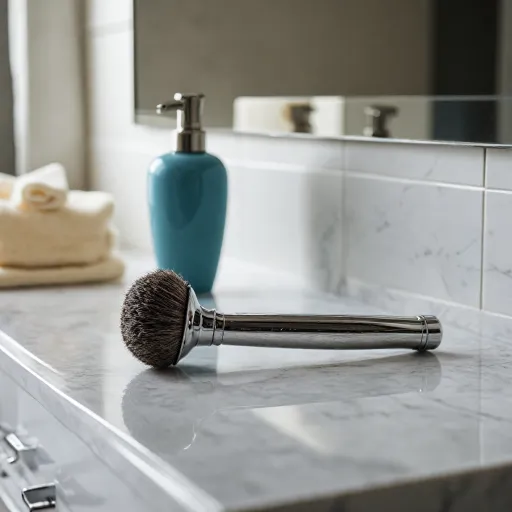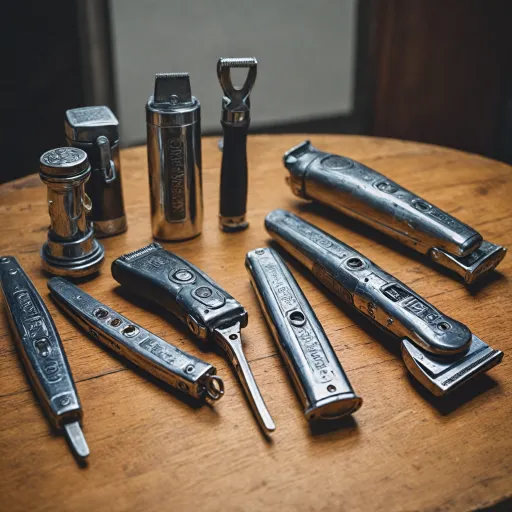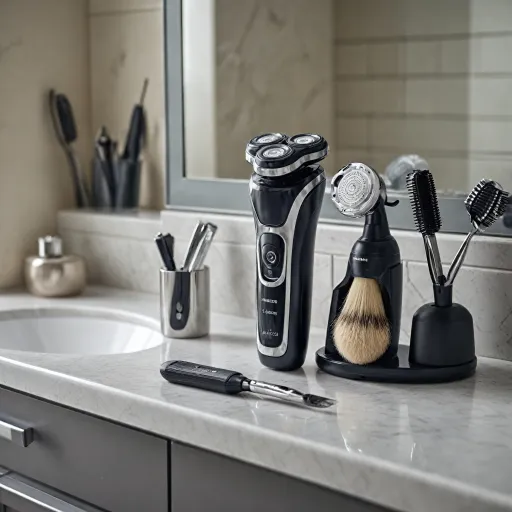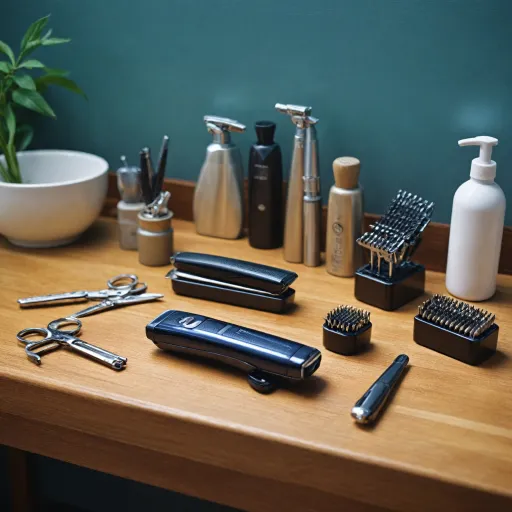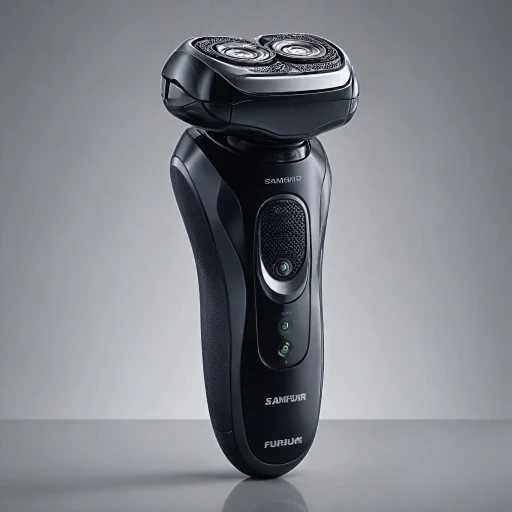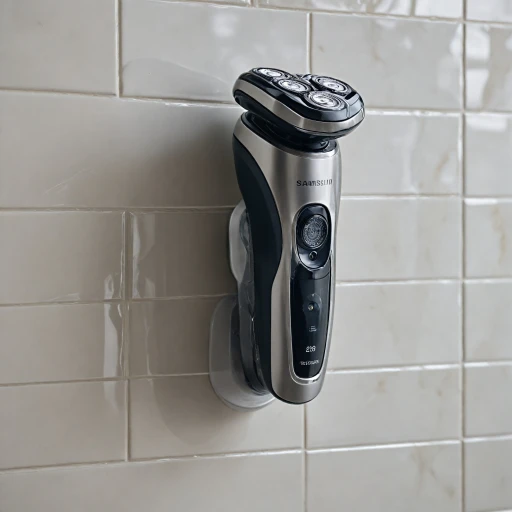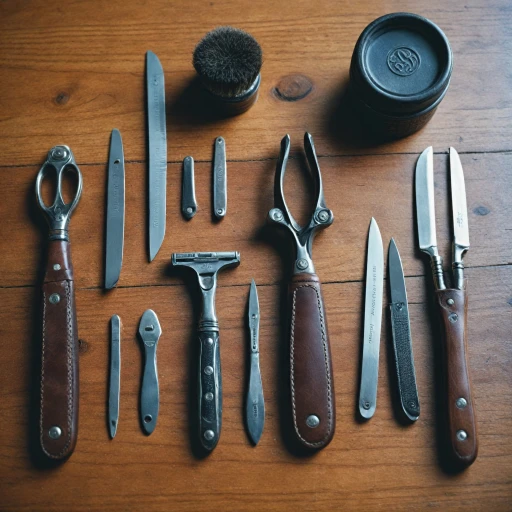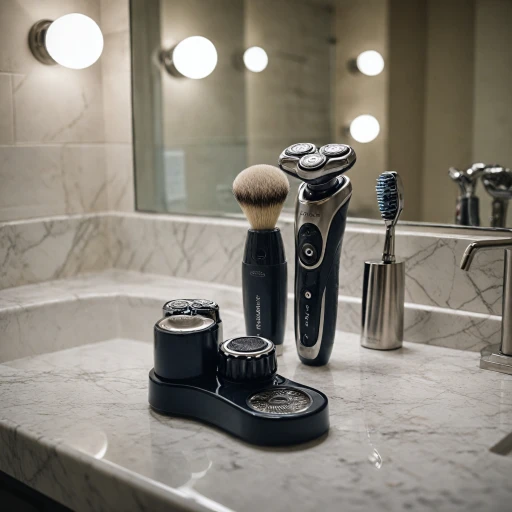
Understanding the Basics: Electric Shaver vs. Blade
Decoding the Basics: Understanding Your Shaving Options
When deciding between an electric shaver and a traditional blade, it's crucial to first understand what each device entails. This fundamental knowledge will guide you in making the best decision tailored to your needs. Electric Shavers: These devices come equipped with either foil or rotary heads that glide over the skin, capturing and cutting hair without direct contact. This design reduces the risk of nicks and cuts, often providing a faster and more convenient shave.- Foil shavers feature thin layers of metal that cover oscillating blades. They are perfect for attaining a close shave on flat surfaces of the face.
- Rotary shavers come with circular heads suitable for maneuvering around facial contours and are ideal for those who shave less frequently.
- A wet shave with a manual razor usually involves shaving cream, providing lubrication and protection for the skin, which is an enticing factor for those with dry or sensitive skin conditions.
Pros and Cons of Electric Shavers
Advantages and Disadvantages of Electric Shaving
Exploring the realm of electric shavers, there are notable benefits and drawbacks to consider. Electric shavers have revolutionized the shaving experience offering a convenient and time-saving option compared to traditional manual razors.- Convenience and Speed: One of the biggest advantages of electric shavers is their ability to provide a quick shave, ideal for men who are often on the go. With no need for shaving cream or water, you can achieve a dry shave anywhere, saving precious time in your daily routine.
- Less Skin Irritation: For those with sensitive skin, electric razors can significantly reduce the risk of razor burns and ingrown hairs. The technology used in foil and rotary electric shavers minimizes direct contact between the blades and the skin, resulting in less irritation compared to manual blades.
- Versatility: Electric shavers can be used for both dry and wet shaving, making them an adaptable choice for different preferences. Many modern shavers also come with attachments for trimming sideburns, beards, and even head hair.
- Long-term Investment: While the initial cost might be higher, electric shavers tend to last longer. They also spare you the recurring expenses of blades and shaving cream associated with manual razors.
- Cost and Maintenance: The upfront purchase price of an electric shaver can be higher, and maintaining them might require additional investments in replacement shaver blades and cleaning solutions.
- Close Shave Challenge: While electric razors are great for a quick shave, they often struggle to match the closeness provided by a manual razor. For those who seek the smoothest possible shave, this might be a consideration.
- Noise and Battery Reliance: Electric shavers can be noisy, and their dependence on batteries or power sources can be limiting if your device is not charged or if you’re away from a power supply.
Pros and Cons of Traditional Blades
Exploring the Advantages and Drawbacks of Using Blades
When considering traditional blades for your grooming routine, there are many aspects to weigh. From the allure of a close shave to the necessary skill required for manual blades, there’s plenty to discuss.- Precision and Close Shave: Many assert that manual razors, such as double edge safety razors, offer a closer shave than their electric counterparts. This is largely because blades cut hair very close to the skin, which can result in smoother results, particularly if you use a quality shaving cream and proper technique.
- Skill and Care Required: However, achieving that smooth finish relies heavily on your skill level. Using traditional blades requires practice and a steady hand, especially to avoid nicks and cuts. Wet shaving can be soothing and effective but demands more time and patience, particularly for those with sensitive skin.
- Handling Ingrown Hairs: A downside of manual shaving is the increased possibility of ingrown hairs. When the hair cut is very close to the skin, as with manual blades, the risk of hair growing back into the skin can be higher, leading to irritation.
- Flexibility For Different Needs: Traditional blades tend to be more versatile across different shaving needs, adjusting to the curves of your face and body. This does require changing the blades often, which can add up in cost over multiple uses.
Skin Type Considerations
Considerations Based on Skin Characteristics
When it comes to choosing between a manual razor and an electric shaver, understanding your skin type is crucial. Different razors and shavers interact with your skin in various ways, and finding the right fit can mean the difference between a smooth shave and uncomfortable irritation.
For individuals with sensitive skin, the choice can be particularly impactful. Electric shavers, especially foil models, are often preferred by those with delicate skin due to their design, which can minimize irritation. They provide a smoother glide across the face, minimizing the chances of ingrown hairs – a common issue with manual razors.
On the other hand, traditional blades, particularly double edge blades, offer a close shave that some argue is unbeatable. However, the risk of nicks and cuts can be higher, and those with sensitive or acne-prone skin might experience more frequent irritation. The use of quality shaving cream is essential for a comfortable wet shave, but it's worth noting that some skin types may react adversely to certain product ingredients.
For individuals with normal or oily skin, either method – electronic shaving or manual – could be suitable. Electric razors offer the advantage of dry shaving, providing a quick solution especially appreciated by those who are always on the go. This could be contrasted with wet shaving methods, which can be more time-consuming but provide a hydrating and closer shave.
If your skin is toughened or frequently faces exposure to the elements, manual razors might be effective, especially for those seeking the ritualistic aspect of shaving. However, electric razors could still offer a more convenient and equally effective option without compromising on the quality of the shave.
Ultimately, the choice between an electric shaver and a manual razor boils down to your skin's unique characteristics, the time you are willing to spend, and how you prioritize ease of use over precision or vice versa.
Cost and Maintenance
Assessing the Investment: What You Should Know
When deciding between electric shavers and traditional blades, understanding the cost and maintenance aspects is crucial. Both options come with their own financial implications, which can impact your shaving experience in the long run.
Initial Purchase Cost: One of the most significant differences between electric shavers and manual razors is the initial cost. Electric shavers typically demand a higher upfront investment compared to manual razors. However, the durability and longevity of electric shavers often offset this initial cost over time.
Maintenance and Replacements: Considering maintenance, electric razors require regular cleaning and occasional replacement of the shaving head or shaver blades. Depending on the model, these components may need replacement every few months to keep the shave close and efficient. On the other hand, manual razors often require more frequent blade replacement, especially if you're using a double edge blade for a wet shave.
Additional Costs: Beyond purchasing and maintaining razors, other factors can affect your overall expenses. With manual razors, shaving cream or gel is often necessary, adding to your grooming budget, especially if you prefer wet shaving. Electric razors, while offering the convenience of both dry and electric shaving, may still require specialized cleaning products to maintain performance and hygiene.
Time Investment: Time is another essential consideration. Electric shavers are generally quicker and more convenient, especially for men with busy schedules. In contrast, manual razors might take more time but offer a ritualistic experience that some find rewarding.
In conclusion, weighing the initial cost against ongoing maintenance and the time saved with electric shavers can guide your choice in finding the right shaving solution for your needs and lifestyle. Whether you prioritize the precision of a manual razor or the efficiency of an electric one, consider these facets to make a confident decision.
